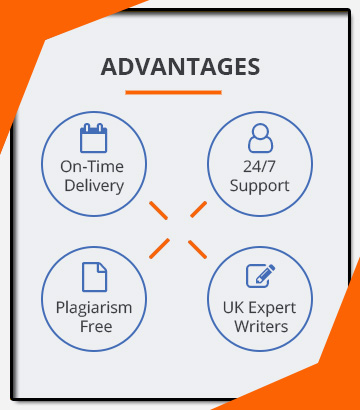Southampton Solent University
Assessment Brief
Assessment Details:
|
Unit Title:
|
Marketing in the 21st Century
|
|
Unit Code:
|
QHO302
|
|
Unit Leader:
|
|
|
Level:
|
3
|
|
Assessment Title:
|
E-Portfolio
|
|
Assessment Number:
|
AE2- Portfolio 2
|
|
Assessment Type:
|
Summative
|
|
Restrictions on Time/Length:
|
1500 words approx. targeting at Portfolio (part 3, 4 and 5, covering the rest of pages)
|
|
Individual/Group:
|
Individual
|
|
Assessment Weighting:
|
40%
|
|
Issue Date:
|
|
|
Hand In Date:
|
|
|
Planned Feedback Date:
|
|
|
Mode of Submission:
|
|
|
Number of copies to be submitted:
|
|
|
Anonymous Marking
|
|
Assessment Task:
Throughout the year you will be working on a project for a company. This part of the assessment focuses on your own work in undertaking the marketing activity for the selected company from the relevant industries
You will produce an E-Portfolio which demonstrates the development of your knowledge and understanding of marketing in order to produce the required outcome for the selected company. Your E-Portfolio will be used to:
a) Demonstrate your learning journey in order to develop appropriate marketing outcomes/resources for your selected company.
b) put forward your ideas to your team which feed into proposal development and the recommendations as the next piece of assessment (group presentations)
Within your portfolio you be responsible for the development, organisation and presentation. You will be provided with thorough training in order to support you with the development of your portfolio.
The following provides the minimum requirements for your portfolio (the unit team expect you to incorporate your own ideas and creative flair into your portfolio):
- Market research: Develop marketing analysis and evaluation of different marketing actions to establish the basic understanding related to the market research.
- Development of marketing pieces, i.e. analysis and evaluation of different marketing tools/resources used by competitors prior to producing own.
- Production of written marketing material based on marketing mix and development of the relevant recommendations.
- Critical Self Reflection on production of E-portfolio.
You will also engage in formative peer assessment of your peer’s development of their portfolio. During the portfolio workshops you will be required to liaise with 1 peer and formatively assess the development of their marketing portfolio. In addition, you will receive formative feedback from your tutor during the portfolio workshops two and four. A full programme of what will be formatively peer assessed, by whom and when is included in the unit pack/Solent Online Learning. Full training for peer assessment will be provided.
Your portfolio must be referenced using the Harvard referencing method. Your portfolio may also contain appropriate referenced illustrations such as figures, tables, graphs, etc.
Learning Outcomes:
This assessment will enable students to demonstrate in full or in part the learning outcomes identified in the unit descriptors.
Knowledge and Understanding
K1 Demonstrate understanding of the role and importance of marketing within an organisation and within the business environment.
K2 Identify and describe current and potential marketing issues, which impact upon organisations.
Cognitive Skills
C1 Research independently and collaboratively into marketing concepts.
Practical and Professional Skills
P1 Discuss information from a variety of sources and apply to an organisation and the wider business environment.
P2 Undertake directed research into a topic using a variety of sources and present a written report.
Transferable and Key Skills
T1 Communicate effectively within written reports and oral presentations.
Peer Review
In addition to producing your own marketing E-portfolio, you will also be peer reviewing one of your peers portfolio’s during each IT portfolio session.
Purpose of Peer Assessment:
Studies have shown that peer assessment influences student learning in a positive way; students not only become better peer assessors, but also increase their learning performance, benefits include:
- Helps students to become autonomous learners, better able to recognise their own strengths and weaknesses – you will get ideas on how to improve your own portfolio pieces.
- Encourages deep rather than surface learning.
- When working as a professional you will be making judgements about other people/critical learning – this will help you to develop how you provide constructive feedback.
- Encourages sense of ownership, students are committed to the learning outcomes and learning process.
- Develops whole range of transferable skills.
The pro-forma provided below will guide you through what you are providing feedback on. You will complete the peer review pro-forma and pass it onto your chosen peer so that they can benefit from your feedback. You will be assessed on your peer review skills; you will NOT be awarding marks to your peers.
Peer Assessment PRO-FORMA:
Please provide as much feedback as possible for your peer.
|
Portfolio Number:
|
|
|
Your Name:
|
|
|
Peers Name:
|
|
|
Date of Review:
|
|
|
Is the portfolio page clearly presented?
Please provide improvements to the page presentation.
|
|
|
Did the portfolio piece include discussion of relevant theory?
How effective were they at this?
|
|
|
Did the writer undertake relevant analysis? How good/strong was this analysis?
|
|
|
Did the writer identify and describe current and potential marketing issues which could impact upon the selected company?
How effective were they at this?
|
|
|
Did the writer make clear the relevance of their portfolio page for the selected company; is there some application to the selected company?
How effective were they at this?
|
|
|
Is there evidence that the writer has been to library to take out/photocopy relevant text books and searched electronic sources?
Is there evidence that the writer has read textbooks / articles to gain a stronger, more in-depth understanding of the marketing concept?
|
|
|
Did the writer use correct Harvard referencing?
Did the writer cite all sources within the text?
Did the writer include a references/bibliography section?
Can you suggest improvements and sources where they can learn for themselves?
|
|
|
Have you been clear and honest with your feedback?
Have you written your feedback in a supportive, helpful and constructive manner?
|
|
Critical Self Reflection:
You are required to write a self-reflective report, critically assessing your E-portfolio. This will support and underpin your justification of your choice of marketing mix recommendations for the case scenario of your selected company. The word limit for this is 500 words. You will discuss the outcome of what you have learned this year whilst producing the marketing portfolio for the selected company in portfolio 5.
Purpose of critical self-reflection
Defining characteristics of self-reflection is the involvement of the student in:
- Identifying standards and/or criteria to apply their work,
- Making critical judgements about the extent to which they have met these criteria and standards.
- Development of skills in self-assessment lie at core of Higher Education.
- Students obtain more feedback, both self and tutor.
The following should be included in the report:
- Positive comments about your portfolio – what was good and why.
- Constructive comments regarding your portfolio – what could be improved and why.
- Problems encountered with undertaking this portfolio.
- Most rewarding aspect of the portfolio.
- Most challenging aspect of the portfolio.
- Skills developed (academic and transferable).
- Skills still need to be developed and identification of how these could be developed.
- How you developed your peer review skills and further support required to develop this.
- Further support you would have liked from tutor.
- Comment on your attendance and contribution in class.
- Further evaluation and reflection not covered in points above.
- Include bibliography demonstrating reading into critical self-assessment/reflection (see Solent Online Learning support).
NB: It will aid you immensely if you keep a research diary/log when completing this assignment. Please include and refer to this in your reflection report. This can form part of your E-Portfolio.
You will be graded on your evaluation skills; you will NOT be awarding marks to your work.
Consideration of special provision arrangements for students with disabilities:
If you have any form of disability that would hinder you in completing this assessment then please discuss with tutor. Please note, all discussions of this nature are in confidence.
Students often lose marks for forgetting some of the more straightforward elements of their assignments. We recommend that you “tick off” each of the points below as you prepare your work for submission. If you need any help, ask your seminar tutor or unit leader.

